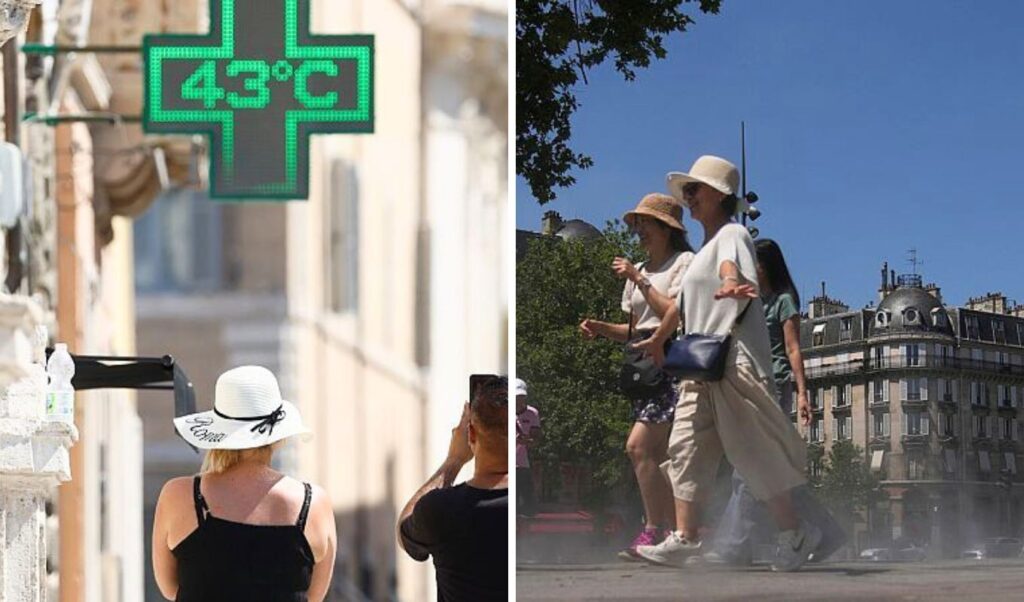The heatwave sweeping across Europe, bringing temperatures up to 46 degrees Celsius, appears to be weakening in France. However, it is moving eastward toward Germany. Yesterday, Tuesday July 1st, southern France recorded temperatures exceeding 40 degrees Celsius, while Paris reached 38 degrees Celsius. However, today, Wednesday July 2nd, the red alert – the highest level – remains in effect only in four regions of central France.
Germany faces the heatwave
Starting today, it’s Germany’s turn to face extreme temperatures, with thermometers expected to reach 38 degrees Celsius in Berlin.
Heat is also prevailing in Belgium, with temperatures exceeding 35 degrees Celsius, forcing the Atomium – the iconic structure in Brussels – to remain closed to visitors until today due to high temperatures.
While heat waves are nothing new after decades of excessive use of coal, oil and natural gas responsible for global warming, heatwaves are occurring increasingly earlier in summer and often lasting until early autumn, affecting among other things school operations.
In France, the absence of air conditioning in school classrooms has sparked political controversy, with the National Rally (far-right) demanding the creation of a plan.
Nearly 1,900 schools in France lacking equipment to cope with heat remained closed yesterday, approximately 3% of the total. In others, classes are being held in courtyards.
In Rotterdam, Netherlands, schools closed early yesterday, while in Germany there’s the option of “hitzefrei” – school closure due to excessive heat established in the 19th century.
Extreme heat also in Spain
Even Spain, a country where air conditioning is more widespread, is suffocating from the heat. Today temperatures will remain at particularly high levels, although storms will also occur.
In Lleida province of Catalonia, in the northeastern part of the country, firefighters announced they found two bodies after a wildfire outbreak.
Hours earlier, also in Catalonia, police reported that a 2-year-old boy left in a car parked in the sun had died.
In Madrid “everyone talks about the heat,” said 62-year-old Carlos Alberto Olivares, who sells newspapers from a metal kiosk where the temperature far exceeds the 36° Celsius recorded yesterday in the Spanish capital. “Now it’s like an oven and in winter like a refrigerator,” he explains.
July has just begun, but the Canal Sur television network has already maintained its annual tradition and managed to fry an egg by placing it on asphalt on a Seville street.
It will take months to assess the number of heat-related deaths, but the heatwaves of 2022 and 2023 caused 70,000 and 61,000 premature deaths in Europe respectively, according to research.




